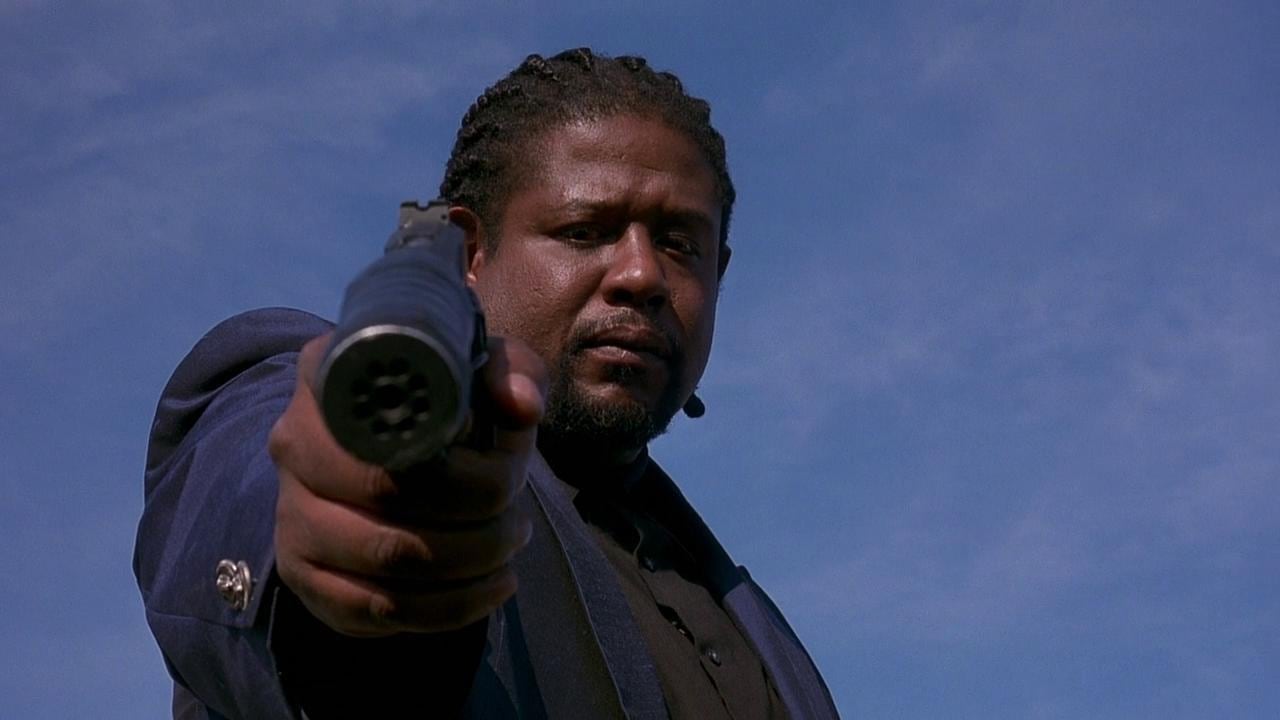All filmmakers reflect the world around them, but few have captured the zeitgeist like director Jim Jarmusch, a soft-spoken New York transplant from Cuyahoga Falls, Ohio, with the philosophy, “Life has no plot, why must films or fiction?”
The cult hero status accrued by Jarmusch is born from his keen social observations, even when it’s sometimes difficult to decipher what he’s trying to say. That’s particularly true of Ghost Dog: The Way of the Samurai (1999), his urban samurai mob movie classic, which plays at the Hollywood Theatre on Feb. 25.
A film that fascinated movie fans by viewing subcultures through a surreal lens, Ghost Dog’s seemingly accidental success is arguably due to its groundbreaking score (by RZA) and leading man (Forest Whitaker). “You see, I start with actors that I want to make a character for,” Jarmusch said in a 2011 interview with Louder Than War. “I don’t know what the story is or where it’s going at all. I just sort of jump in and start. In fact, I think I do it backwards.”
Ghost Dog was the product of a chance encounter between Whitaker and Jarmusch at a Super 8 camera store. And Jarmusch didn’t just hire an actor most filmmakers would have scoffed at for such a role: He specifically made the role for him.
Together, the pair concocted a character we’re compelled to root for despite the moral ambiguity and brutality of his job. A hit man with a samurai’s code, the protagonist known only as “Ghost Dog” has a sense of purpose that’s somehow inspiring. And then there’s Whitaker himself, whose portrayal seers the consciousness with little dialogue.
“There’s something about Forest that goes right to my heart,” Jarmusch said in a behind-the-scenes documentary. “There’s something very human and beautiful about his presence.”
Ghost Dog was big in the Black community due to a familiar Afro-Asian cultural theme born from East Coast summer scorchers driving urban Black youths of the ‘70s into air-conditioned grindhouse theaters for double-feature combos like Black Caesar and The Five Fingers of Death.
These Blaxploitation and martial arts films had a profound impact on kids seeing nonwhite heroes for the first time. That led to the emergence of the first Black martial arts leading man, the incomparable Jim Kelly, and a generation of young moviegoers raised to see themselves fighting back against The Man through music and movement.
Enter RZA, founding member of the Wu-Tang Clan, whose music was shaped by those theaters and became the sound Jarmusch sought for the atmosphere of Ghost Dog. At the time, RZA just so happened to be looking for a project to score, spurred by a conversation he’d recently had with Quincy Jones (having never scored a film before, he looked to Peter and the Wolf and Sergei Prokofiev for guidance).
In Ghost Dog, we witness the protagonist’s unyielding loyalty to a feckless gangster (John Tormey) from a crew hanging on to relevance during the waning days of the Italian Mafia. “If one were to say in a word what the condition of being a samurai is, it’s basis lies first in seriously devoting one’s body and soul to his master,” Whitaker narrates from Hagakure: The Book of the Samurai by Yamamoto Tsunetomo.
Jarmusch compared Ghost Dog’s sense of devotion to that of Don Quixote, but it all boils down to finding security in a sense of purpose. In a rapidly changing world that rarely makes sense, it’s a comfort knowing someone like Jarmusch is still diving headfirst into the randomness we struggle to make sense of and taking notes.
The film speaks to so many of us. And like the Ghost Dog’s French-speaking Haitian-immigrant best friend (Isaach de Bankolé), we may not always know what’s being said, but we understand.
SEE IT: Ghost Dog: The Way of the Samurai, rated R, plays at the Hollywood Theatre, 503-493-1128, hollywoodtheatre.org. 7 pm Saturday, Feb. 25. $8-$10.
